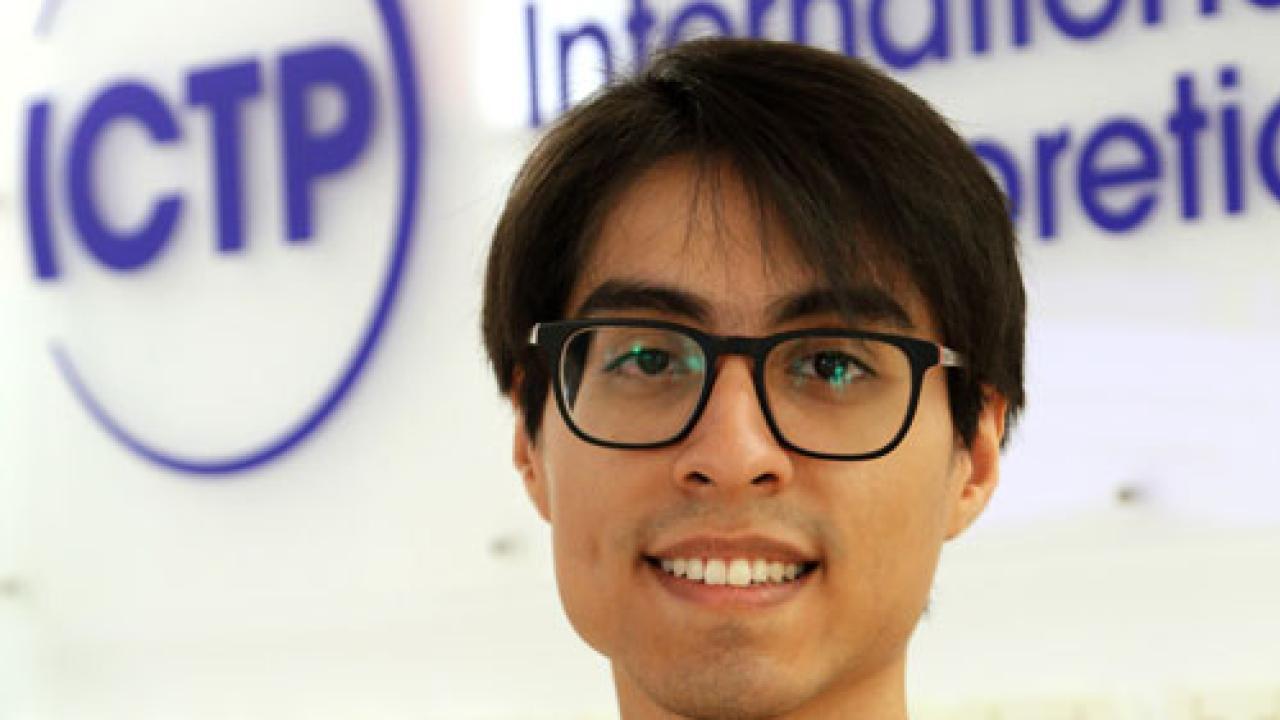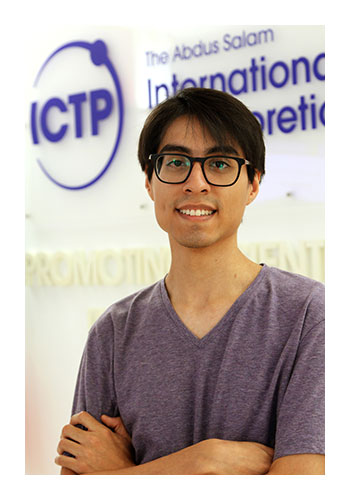
 ICTP's Postgraduate Diploma Programme passed an important milestone in 2021 when it celebrated its 30th anniversary. Since the programme's inception in 1991, more than 1000 young scientists from over 80 countries have completed the intense, year-long course of study and gone on to earn PhDs from international universities, mainly in Europe and in the United States. These Diploma alumni often return to their home countries to put their acquired skills to good use, by becoming teachers or researchers, thus supporting ICTP's mission to promote advanced scientific research for all.
ICTP's Postgraduate Diploma Programme passed an important milestone in 2021 when it celebrated its 30th anniversary. Since the programme's inception in 1991, more than 1000 young scientists from over 80 countries have completed the intense, year-long course of study and gone on to earn PhDs from international universities, mainly in Europe and in the United States. These Diploma alumni often return to their home countries to put their acquired skills to good use, by becoming teachers or researchers, thus supporting ICTP's mission to promote advanced scientific research for all.
One of the latest students to join the esteemed ranks of Diploma graduates is Johann Sebastian Quenta Raygada of Peru. Johann spent the last year at ICTP absorbing coursework in physics and mathematics that is not available in his home country. Thanks to the research experience he has gained through the programme, under the steady guidance of ICTP mathematical physicist Pavel Putrov, he was accepted to a master's programme at the University of Burgundy in France, and plans to continue his education at the doctoral level to eventually earn a PhD. In this interview, he talks about his life-long attraction to science and shares his dreams for a career in academia.
When and why did you decide that you wanted to dedicate your studies to physics?
When I was a child in middle school, I loved reading books about science, including physics, biology, and anatomy. In my last years of school, I remember I had to take physics courses again, and rediscovered my love for science. That's when I decided I really wanted to work in science.
What are some challenges you faced in pursuing your studies in your home country in Peru?
I want to specialize in theoretical physics. And to be honest, there's not many people in Peru who do this. There's a lot of work in experiments or laboratories. If you find someone who does theoretical physics, their work is usually not pushing the frontiers of fundamental physics, like the work that people do at ICTP. This is a main challenge for someone in Peru who really wants to do fundamental physics. That's why I had to go out of the country, as such research opportunities in Peru are very scarce.
How has ICTP helped you to overcome those challenges?
Well, mainly with all the coursework, courses that I always wanted to take, but I didn't have the opportunity in Peru. And then the research: I had the opportunity to work with Professor Pavel Putrov, who has a joint appointment in the High Energy Physics and Mathematics sections. I really enjoyed doing that work, because the topic has been intensively studied in the last few years, so it's something that is relatively new, and something that people in the community are actually interested in.
What topic did you investigate for your Diploma thesis?
It's a generalisation of some of the usual concepts that one has in quantum field theory. When studying quantum field theory, there's this main concept called symmetry, which is very important, because it leads the pathway to a lot of the knowledge we have from quantum field theory. It also leads the way to constructing models that could match reality. If you generalise this concept of symmetry, we can get new insight on the general properties of quantum field theories, as well as on their underlying mathematical structure. People in this community are working actively on finding these kinds of generalisations, and finding new results from studying these new symmetries. I reviewed a seminal paper from 2015 ("Generalized Global Symmetries", DOI: 10.1007/JHEP02(2015)172). Which was like, the start of all of this.
In your opinion, what were the strengths of ICTP's Postgraduate Diploma Programme?
I think the main strength is this basic idea, that you take people from developing countries who are having a hard time finding the research opportunities or their way to science in general, and you put them in this programme, you train them, and then they can freely go to, say, PhD programmes overseas. For many of my classmates, I've seen how they've succeeded in doing this. I was accepted to a master's programme in France, at the University of Burgundy. I think the main point is that if you stay in your home country, you have many problems. And maybe it's very difficult even to get accepted to universities overseas. But now this gives you a big boost in your career and there's this big point in your CV that makes you very special.
What do you hope to achieve beyond the Master's degree?
I would definitely like to apply to a PhD programme. I actually did this at the end of last year, but I failed, I would guess it's because of my lack of research in theoretical physics, because I didn't have that. I just did that here at ICTP in the last few months. So I'm going to apply again this year, now having the experience of the thesis and the recommendation letters. I want to specialize in the field of mathematical physics, and in particular in the intersection between high-energy physics and pure mathematics.
How do you see yourself in 10 or 20 years?
I would definitely like to have an appointment as a professor in a university. I think it's a very long way. But I think I will be able to do it. And sometime in the future, I would definitely like to do some work in parallel to make the situation for theoretical physics better in Peru especially. When I was an undergrad, I actually participated in many outreach activities; me and some friends would go to middle schools to give talks about science and show physics experiments, to show the students that physics is interesting, that it's worth doing. I really like that, and I think I would really like to do something similar in the future.
Is there anything else you wanted to add about your experience at ICTP?
Maybe just to say thanks to the ICTP for hosting me here. I mean, it was a very great experience, both for my career and for my personal level. I met a lot of friends, I met a lot of friendly professors who gave me very good advice for my future as a researcher. The work I did here was incredible. It was super interesting. My professors always supported me.
















